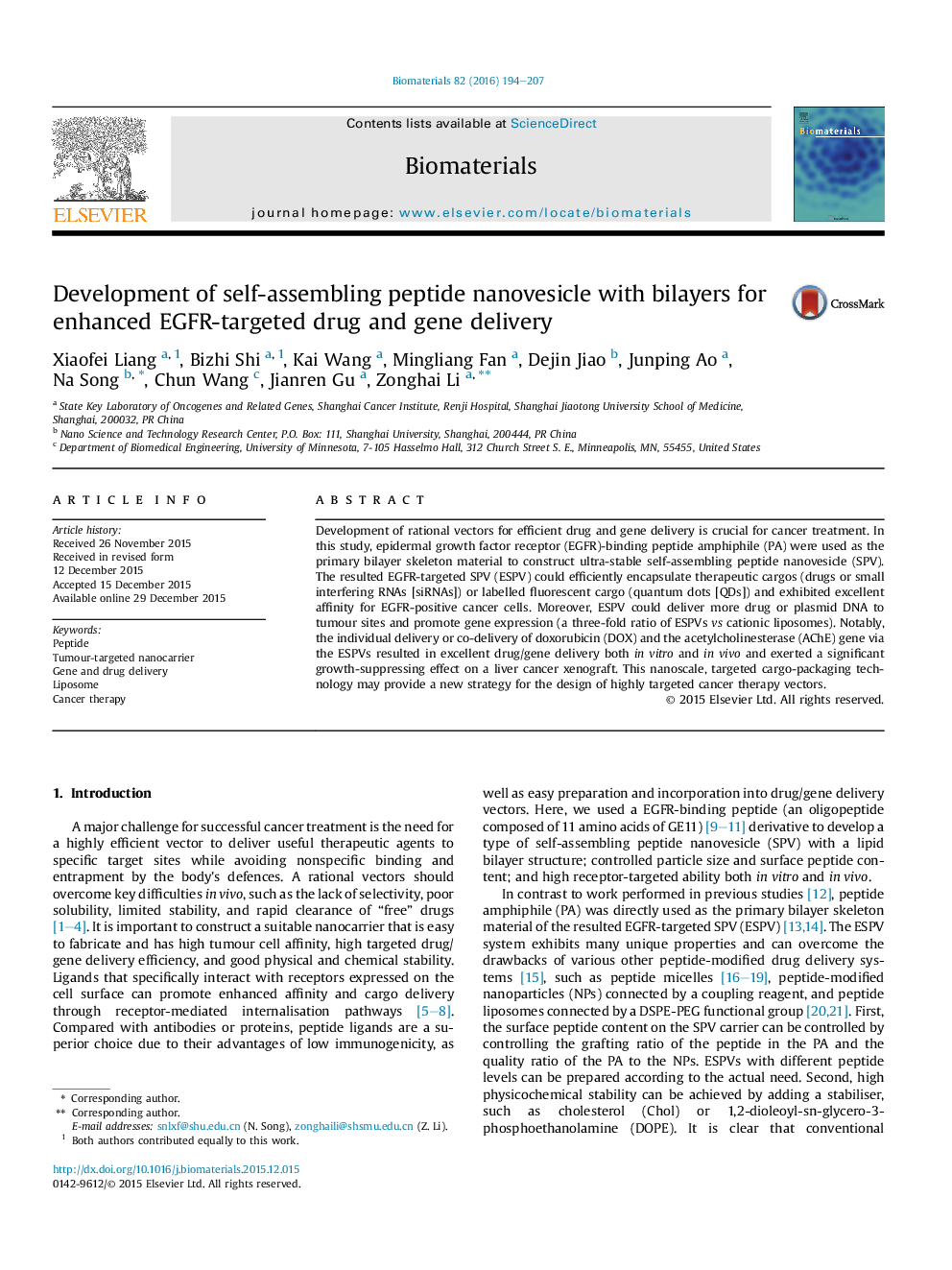| Article ID | Journal | Published Year | Pages | File Type |
|---|---|---|---|---|
| 6485179 | Biomaterials | 2016 | 14 Pages |
Abstract
Development of rational vectors for efficient drug and gene delivery is crucial for cancer treatment. In this study, epidermal growth factor receptor (EGFR)-binding peptide amphiphile (PA) were used as the primary bilayer skeleton material to construct ultra-stable self-assembling peptide nanovesicle (SPV). The resulted EGFR-targeted SPV (ESPV) could efficiently encapsulate therapeutic cargos (drugs or small interfering RNAs [siRNAs]) or labelled fluorescent cargo (quantum dots [QDs]) and exhibited excellent affinity for EGFR-positive cancer cells. Moreover, ESPV could deliver more drug or plasmid DNA to tumour sites and promote gene expression (a three-fold ratio of ESPVs vs cationic liposomes). Notably, the individual delivery or co-delivery of doxorubicin (DOX) and the acetylcholinesterase (AChE) gene via the ESPVs resulted in excellent drug/gene delivery both in vitro and in vivo and exerted a significant growth-suppressing effect on a liver cancer xenograft. This nanoscale, targeted cargo-packaging technology may provide a new strategy for the design of highly targeted cancer therapy vectors.
Keywords
Related Topics
Physical Sciences and Engineering
Chemical Engineering
Bioengineering
Authors
Xiaofei Liang, Bizhi Shi, Kai Wang, Mingliang Fan, Dejin Jiao, Junping Ao, Na Song, Chun Wang, Jianren Gu, Zonghai Li,
